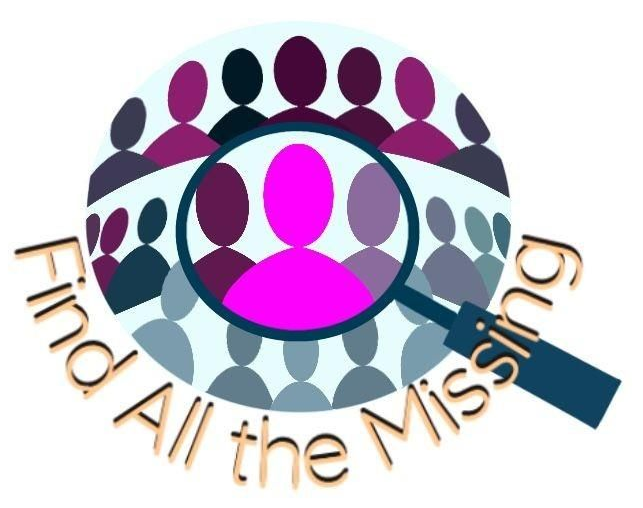Policing is meant to keep our communities safe and uphold the law. However, the reality can be much darker. In recent years, numerous incidents of police brutality and unfair treatment based on race have come to light, showcasing what we refer to as "the dark side of policing." From selective enforcement and documentation to unconscious biases and systemic discrimination, there are various factors that contribute to the racial bias in policing decisions. This also trickles over into how some police agencies handle some missing persons cases. At Find All the Missing, we take on this challenge to help give voice and agency to the families and friends of so many marginalized and overlooked missing persons of color, in particular.

In these mounting files, which cases get immediate attention by investigators, which are put off for later, and why?
Racial Bias in Policing Decisions
For decades, some law enforcement agencies have committed the act of selective enforcement and selective documentation. Some police agencies do not report or document some types of incidents accurately because the negative numbers create image issues for the agency head, impact or limit already stretched resources, and/or future wages. Low crime statistics help them justify or legitimize their conduct. While others refuse to report or document certain types of cases because their biases overshadow their duty, even if resources and the workforce are not impacted. Bias is a strong motivating factor in behavior, and can often outweigh sense of duty and fair treatment of all.

If only Part II offenses, which include missing persons cases,
were considered as equally serious as Part I offenses...
How Crimes Are Documented and Classified
The federal government’s crime reporting database, Uniform Crime Reporting Program, UCR, controls how law enforcement nationwide documents and classifies crime. Nationwide, crimes are classified in the UCR in one of two categories: Part I or Part II Offenses. Serious violent and property crimes cases are classified in the UCR as Part I offenses. Part II offenses are less serious than Part I offenses and are not consistently reported by all law enforcement agencies. In the context of missing persons cases, they fall under Part II offenses because only arrest data are reported for these incidents. Law enforcement agencies focus on Part I offenses to measure the level and scope of crime nationwide.

From every small town to major metropolis, communities want and need to trust their local law enforcement
Impact of Selective Enforcement on Community Trust and Safety
Because law enforcement agencies control the process, the reporting of missing people of color has been skewed in the UCR so much because of bias that much of the public does not realize missing people of color are an issue. Add to that there are states where a case of a missing child taken by a non-custodial parent is classified as a Civil case and therefore not a police matter. In addition, many missing people are not documented or reported because they are in this country illegally. Further, other cases are not considered at all because the missing person is part of a Native American tribe, and local law enforcement lacks authority on tribal land. The specter of personal and/or racial bias further limits the potential for positive results in these cases. All of these factors help fuel the growing levels of mistrust that community members have toward the very people sworn to serve and to protect all of us.
Policing is about protecting and serving, not just enforcing and documenting - let's focus on the whole picture.
Impact of Systemic Discrimination in Policing Practices
These issues are not limited to the actions of individual officers, but are often rooted in systemic discrimination within policing practices. From hiring and promotion practices to the distribution of resources and training, there are various factors within the policing system that contribute to the perpetuation of racial bias. Without addressing these systemic issues, it will be challenging to address and eliminate the dark side of policing, and help bring closure in missing persons cases, particularly those involving persons of color..
The long and winding road of frustration and unanswered questions can only be navigated, and overcome, by focused effort
As a society, it is crucial to acknowledge and address what we are referring to as "the dark side of policing." We need to have open and honest conversations about systemic discrimination, unconscious biases, and the impact they have on our communities. Police departments also need to prioritize diversity, inclusion, and bias training to ensure fair and just treatment for all members of society. Only then can we move towards a more just and equal society for everyone.
